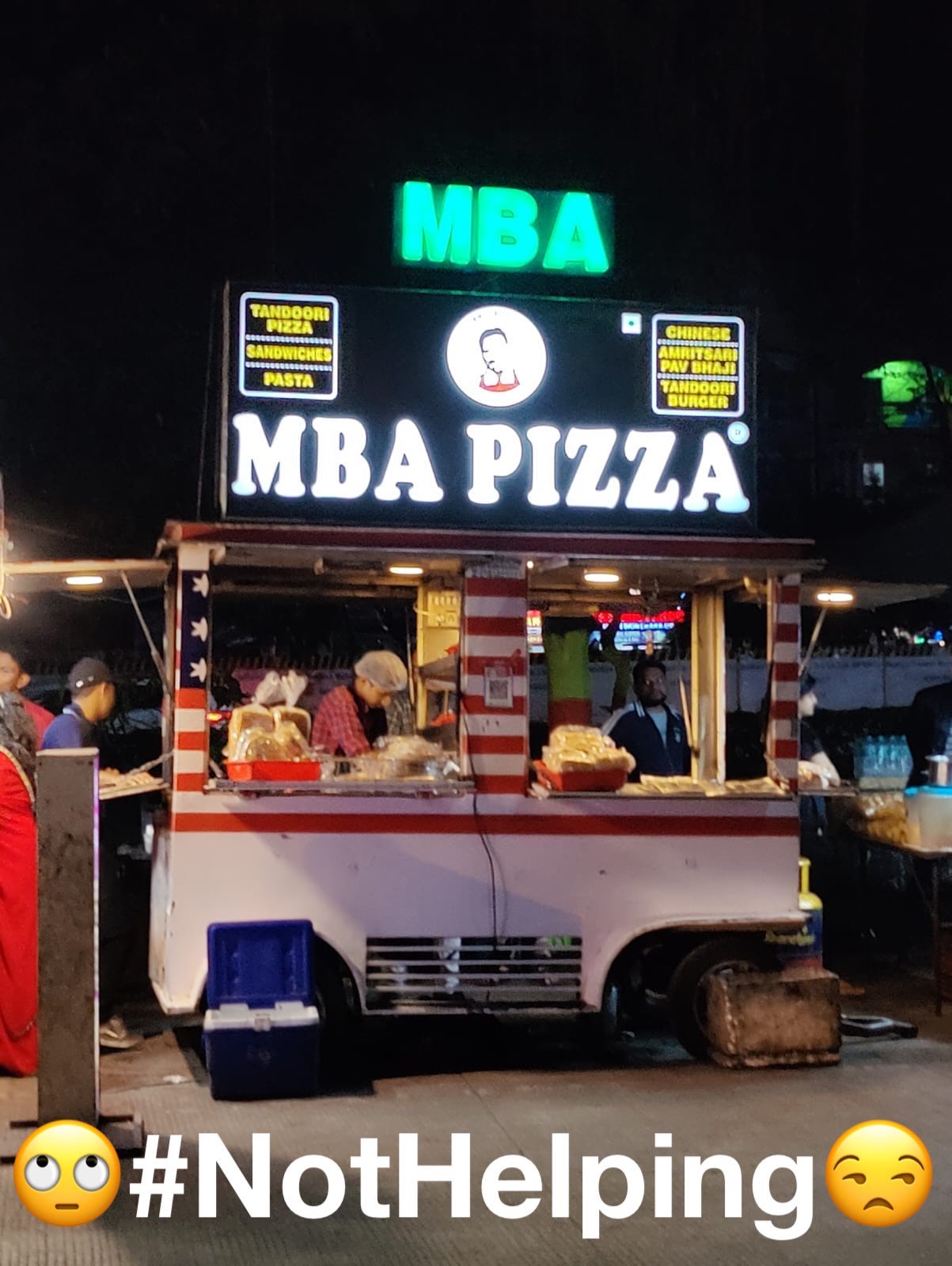From Rejection Pizzas to a $100k Wharton Scholarship.
Harjas has wanted to go to Wharton for about as long as he can remember. As a young boy, he met a grownup from the college and was impressed enough that he decided on Wharton as his dream school; long before he had even heard of an MBA or understood the concept of a dream school.
However, till a few days ago, Harjas’ Wharton dream looked like it was going to remain just that. Harjas was realistic about his chances as he was not from a feeder college like IIT or SRCC and at first, he had a lower than average GMAT. He had already received rejection letters from Columbia, Booth and Harvard, while Kellogg and MIT had waitlisted him. Things were not looking good for Harjas but he was undaunted.
Harjas is no stranger to difficult times. He was just 3 when his father lost his job and started a small electrical spare-parts shop. His pregnant mother joined the workforce and Harjas accompanied her on trips buying stock for their shop. He witnessed first-hand, how a business is setup & run and how his parents made the best of a bad situation and became financially stable once again.

A few years later, when his father had a massive heart attack, Harjas’ dadi (grandmother) moved in to take care of the children while both his parents were away at hospitals. Family and neighbours stepped in to help in any way they could; from sending cooked meals everyday to taking the children to school. At just ten, Harjas contributed what he could by taking tuitions to help. His father recovered fully and Harjas excelled in school, going on to become head-boy in his final year.
An intense feeling of gratitude and debt to the universe is how Harjas describes what these formative experiences left him with, in addition to teaching him the importance of building strong relationships. It is this need to give back to the world that characterizes Harjas Gulati’s career path.
As the youngest team lead at Bain & Company, Harjas launched a training program for underperforming analysts after personally mentoring employees that no other managers wanted. At Accel, Harjas pushed through a difficult ₹ 70Cr. valuation deal for an app that automates speech therapy exercises for stuttering. Today, it has already helped 50,000 users overcome speech disorders.
In 2020, when the Indian medical infrastructure crumbled under the onslaught of COVID, Harjas was frustrated that he couldn’t help alleviate the nationwide shortage of hospital beds or medical oxygen. After witnessing the concurrent mental health crisis the pandemic caused, he cofounded Untangle, a non-profit focused on mental health and well-being. Untangle offers counselling and psychotherapy via ‘first-in-the-world’ automated diagnosis and matching. The non-profit also works at dispelling deep-rooted Indian taboos about discussing or even acknowledging mental health struggles.
When Harjas decided it was time to for him to get an MBA, he already knew he wanted to go to Wharton. Many of his colleagues were alumni and Harjas was impressed with their way of thinking and close-knit network. Many had also worked with Admissions Gateway and had nothing but praise for Rajdeep Chimni.
Harjas’ application process lasted a year. Despite rejects from Columbia, Booth and Harvard, Rajdeep remained confident in his ability to gain admission to an M7 school. Harjas took the GMAT again and scored 750 in his second attempt. They worked together dedicatedly on researching Wharton and crafting essays that showed the full scope of Harjas’s experience and the contributions he could make to his class. This was followed by multiple simulations and mocks to prepare for Wharton’s group discussion and interview.
Harjas says his parents have always been supportive throughout his life and each time he received a rejection in the admission process, they ordered pizzas for him. Harjas ate a lot of pizza this year and even sent Rajdeep this photo.
“Rajdeep, if I don't get an admit this is where I am joining”

On the 23rd of March, Harjas received his first acceptance: Wharton. The first call he made: “Rajdeeeeeeppppp, I can’t believe it!”
The 100k scholarship is the icing on the cake and as far as Harjas knows, the highest awarded this year.
Harjas is hesitant to speculate about the reasons for his acceptance to Wharton. While it may have been due to the proportion of social work in his background, he cautions that the admissions process is opaque and an applicant can never be sure why one is accepted or rejected by a business school. His advice for applicants who are just starting the process is to not take rejections personally and to keep focusing ahead on the next admission. This is easier said than done, he confesses. The MBA admissions process has indelibly linked pizza with rejection in his mind now, he laughs.